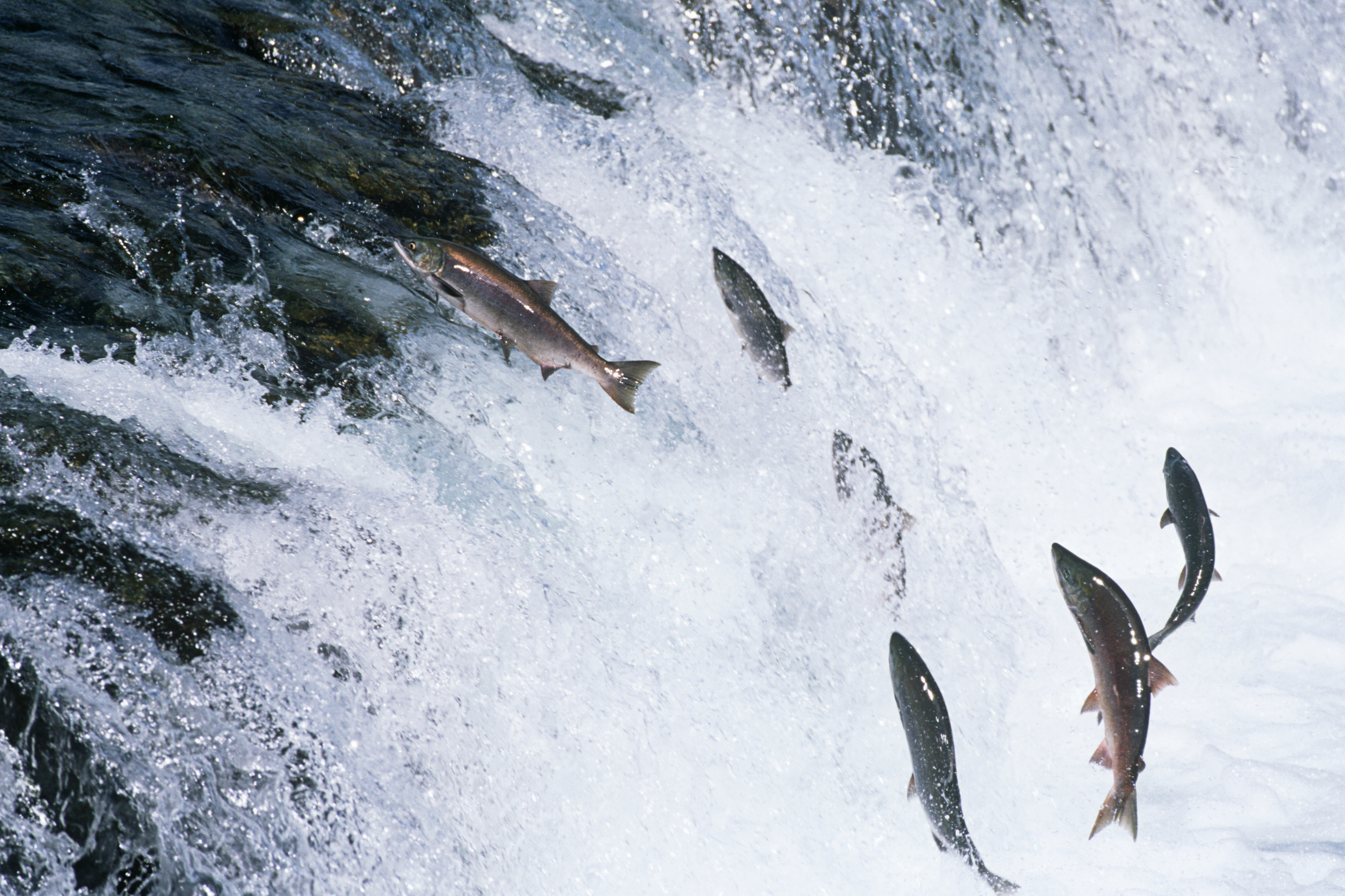
- Details
- By Darren Thompson
Two Alaska Native organizations are suing the federal government to protect subsistence fishing rights on two of the state’s largest river systems amidst a worsening salmon crisis.
Earth Justice, a nonprofit public interest environmental law organization, filed a lawsuit last week on behalf of the plaintiffs — the Association of Village Council Presidents (AVCP) and Tanana Chiefs Conference (TCC) — against the National Marine Fisheries Service (NMFS) in U.S. District Court asking it to reexamine groundfish catch limits for the Bering Sea and the Aleutian Islands.
Collectively, AVCP and TCC represent more than 100 tribal communities in the Yukon-Kuskokwim region who have been fishing the area salmon for thousands of years. The tribes claim that a restriction on fishing for subsistence in the region with a preference for commercial fishing has halted the centuries-old practice for more than a decade.
The region is one of the poorest in the state, making salmon harvest critical to food security.
“Families haven’t been able to fish for salmon for years, essentially at all, on the Yukon [River] and the Kuskowkim [River],” said AVCP’s General Counsel Joy Anderson in an interview with Native News Online. “That’s what is prompting the lawsuit, but near-total collapse is what we’re experiencing right now.”
AVCP is a nonprofit tribal organization that promotes self-determination and protection and enhancement of cultural and traditional values, including advocating for the protection of the Bering Sea and its resources. It represents more than 27,000 people, primarily of Yup’ik, Cup’ik, and Athabascan heritage, and 56 federally recognized tribes in 48 communities along the Yukon and Kuskokwim Rivers.
“We don’t believe that management is prioritizing subsistence as high as it should be,” Anderson said. “Our hopes are that fisheries management start taking a holistic approach in what they are doing and that subsistence fishing is prioritized.”
The commercial fishing industry continues to fish the region for Chinook and chum salmon, which are being over-harvested, says AVCP. According to the lawsuit, NMFS relies on an environmental impact statement (EIS) completed in 2007 for the harvest specifications and an EIS from 2004 for the groundfish fisheries management plan.
“Our communities have a generational dependence and engagement with salmon and fishing,” VCN’s Natural Resource Director Jessica Hooper told Native News Online. “The last three years, specifically, subsistence fishing, or fishing for food, has been completely restricted and closed for the entire salmon season on Yukon. With severe restrictions and complete closures for multiple years, for more than a hundred communities and thousands of families, you can imagine how that is impacting the region.”
Since at least 2007, western Alaska Chinook salmon stocks have been in decline, followed by collapses in chum and coho salmon stocks over the last three years, according to Earth Justice.
As well, the Bering Sea has experienced warming ocean temperatures, loss of sea ice, shifts in the abundance and distribution of fish species, massive seabird die-offs and decreased nutrient productivity.
AVCP and TCC contend the system used to determine harvesting is outdated and doesn’t reflect the changes in the environment.
“The NMFS’s analysis is almost 20 years old and a lot has happened in the Bering Sea,” Senior Attorney for Earthjustice Kate Glover told Native News Online. “This lawsuit is about asking the NMFS to take a look at the effect of the choices it makes in fisheries management decisions. Alaskan Native people rely on healthy ocean resources, including salmon, and we would hope that a new process takes another look at how it limits harvests.”
More Stories Like This
A River Worth Defending: Chilkat Community Mobilizes Against MineU.S. Forest Service Approves Drilling at Pe’ Sla, Threatening Indigenous Land and Water
Gwich'in Tribal Governments Submit Comments Challenging Fish and Wildlife Service's Inadequate Environmental Review of Arctic Refuge Snow Road
Rappahannock Tribe Challenges 9M-Gallon Water Plan
Feds release draft long-term plans for Colorado River management
Help us defend tribal sovereignty.
At Native News Online, our mission is rooted in telling the stories that strengthen sovereignty and uplift Indigenous voices — not just at year’s end, but every single day.
Because of your generosity last year, we were able to keep our reporters on the ground in tribal communities, at national gatherings and in the halls of Congress — covering the issues that matter most to Indian Country: sovereignty, culture, education, health and economic opportunity.
That support sustained us through a tough year in 2025. Now, as we look to the year ahead, we need your help right now to ensure warrior journalism remains strong — reporting that defends tribal sovereignty, amplifies Native truth, and holds power accountable.
 The stakes couldn't be higher. Your support keeps Native voices heard, Native stories told and Native sovereignty defended.
The stakes couldn't be higher. Your support keeps Native voices heard, Native stories told and Native sovereignty defended.
Stand with Warrior Journalism today.
Levi Rickert (Potawatomi), Editor & Publisher

